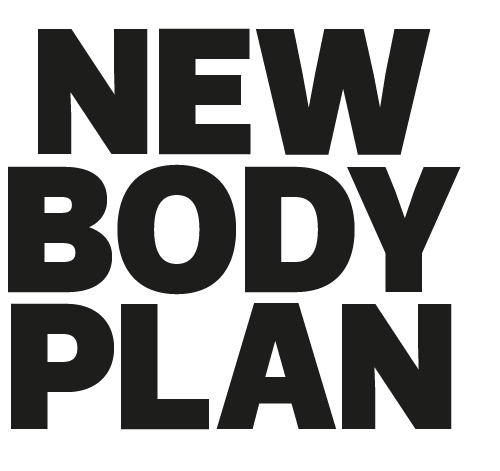Sleep better tonight and every night
Try these tried-and-tested sleep better tips to feel better than ever tomorrow!
Do you want to strip away fat fast? Do you want to add muscle quickly? Do you want to have sky-high energy levels, unshakable willpower and motivation, and a lust for life with a libido to match? Then you need to sort your sleep, because only by getting enough quality shut-eye every night will you be able to live the fittest, healthiest and happiest life possible.
Indeed, sleep is the crucial third pillar – alongside a progressive exercise programme and a smart and sustainable nutrition plan – of any successful transformation plan, but for too many people sleep is simply something you do at the end of the day, rather than a very important part of every 24-hour period when your body recharges, rejuvenates and recovers.
To find your perfect transformation plan, take the New Body quiz!
Take the New Body quiz!
Brain drain
Why is sleep so important? The truth is we still don’t have a fully comprehensive answer, but new research is constantly shining the light on some possible explanations. For instance, during the day metabolic “debris” accumulates between the connections in the brain and impairs the ability of nerve cells to communicate. When you sleep the gaps between brain cells open up and spinal fluid flows in, flushing out this detritus. If you don’t get enough good-quality sleep this process is inefficient and this metabolic junk can build up.
Even a few nights of poor sleep can have severe negative effects on your health, including an increase in body fat, a loss of muscle mass, lowered levels of testosterone, higher levels of the stress hormone cortisol, and impacts other hormones, including those responsible for hunger, going haywire. It also impairs decision making, concentration, communication and language skills, and kills motivation and determination, making exercise almost impossible and eating healthier a real struggle.
And that’s just the immediate consequences: over time the long-term risks include a greater chance of obesity, heart disease and depression, as well as many other mental and physical illnesses and problems.
Find your perfect fat-loss plan!
Take the New Body quiz!
Sort your sleep
You don’t need scientific research to tell you that a good night’s sleep does wonders for your mood and sense of wellbeing, although plenty exist, but the impact is similar for your physical abilities too: basketball players who slept for 8.5 hours a night not only ran faster but also saw their free-throw success rate climb by almost 10%, according to a Stanford University study. So if you want to look, feel and perform better than ever try these tips to fall asleep faster and stay sleeping for longer.
1 Kick back on coffee
Why: We love our morning bean buzz as much as anyone, but if you drink too much caffeine – from coffee, tea, energy drinks or any other caffeinated beverages – too late in the day then don’t be surprised if your sheep counting gets into five figures. That’s because caffeine binds to receptors in your brain that would otherwise attract adenosine, which is a chemical compound that’s a by-product created by your muscles during exercise. A build up of adenosine in the brain, over the course of the day, causes tiredness by slowing down nerve cell activity, but caffeine blocks adenosine from binding to the brain by hogging all the receptor cells. Even having a cup of coffee six hours before bedtime can reduce total sleep duration by more than hour, according to the experts at the Journal of Clinical Sleep Medicine, who you’d hope know exactly what they’re talking about.
How: Caffeine has a half-life – which is the time it takes for half the dose to be removed from your body – of around six hours, so it hangs around playing havoc for hours after your last cup of coffee. Even if you can tolerate caffeine well, and never suffer from the jitters, it’s best to avoid tea and coffee after 12pm to give your body enough time to flush it out of your system. It’s worth noting that green tea contains caffeine, although about half as much per cup as black tea, while even decaf tea and coffee still contain small doses of the stimulant. Best to stick to water.
2 Put your phone to sleep first
Why: Smartphones, tablets, laptops, TVs – we’re surrounded by screens all day long, but staring at them too close to bedtime makes it far harder to fall asleep. The blue light emitted from these devices is interpreted by your brain as sunlight, and so suppresses the release of melatonin, the hormone that induces sleepiness.
How: If you’re glued to your phone then start putting it to sleep at least an hour before your turn-in time. Not only will its blue light keep your brain firing, you’re also likely to be scrolling social media or checking work emails, which for many people is a source of stress that spikes adrenaline and other flight-or-fight hormones that’s going to make you feel wide awake. If you need it for your morning alarm set it to Airplane Mode, or if you use a phone or tablet to read switch to a paper book instead: subjects who do fall asleep 30 minutes sooner than those who read on a screen, according to a study published in the journal Psychological Reports.
3 Write down your worries
Why: Nothing’s more certain to make you toss and turn all night than being worried about work stress or other sources of professional or personal problems. Yet the simple act of writing down your concerns, or a “tomorrow to-do list”, will commit your concerns to your notebook and get them out of your head.
How: Keep a pad of paper and a pen next to your bed and jot down the big jobs you want to get done in the morning. And then take a minute to write out one thing for which you’re grateful: people who keep a nightly gratitude journal sleep on average for 30 minutes longer than those who don’t, according to the Journal of Psychosomatic Research.
4 Knock out the night cap
Why: A drink or two after a long day might seem like a great way to unwind, and even make you feel sleepy, but booze isn’t your best friend when you want quality kip because of how alcohol affects your brain. In one study, published in the Alcoholism: Clinical & Experimental Research Journal, subjects that sank a few cold ones before bed had more slow wave sleep patterns – scientifically known as delta wave activity – which is the period of deeper sleep that’s associated with brain recovery and restoration. So far, so good.
But they also had heightened alpha wave activity, which is the pattern of brain behaviour typically associated with wakefulness. It’s this “competition” between alpha and delta waves that disrupts sleep, which is why you’ll often wake up tired and drowsy the morning after only a couple of drinks.
How: The obvious advice here is to stay off the sauce, especially during the week, to get the highest quality and quantity of sleep so you bounce out of bed each morning. If work or social commitments make drinking inevitable, keep the booze count down by nursing a small clear spirit with a lot of sugar-free mixer rather than necking pints of lager, which can contain three times as much alcohol per round.
And if your evening routine involves pouring yourself a big glass of vino as soon as you step through your front door, delay – or even break – your evening booze habit by doing a yoga session on YouTube, writing down your day’s highlights in a journal, or calling a friend or family member for a feel-good chat.
5 Load up on magnesium
Why: Magnesium is an essential dietary micronutrient found in vegetables, wholegrain and leafy greens, such as spinach, and is needed by every single cell in your body. It plays a major role in sleep quality, and if you’re deficient in this element then you may struggle to fall – then stay – asleep. The recommended daily intake in the UK is 300mg for men, and 270mg for women, which is a target you should hit if you eat a rich and varied diet that includes five servings of veggies a day. However, magnesium is lost through sweat, so if you exercise a lot and don’t replace it through your diet you may have low levels.
How: If you think you’re deficient in magnesium then start eating foods rich in the element, which also includes nuts, seeds and beans. You can also take a magnesium supplement, either in pill or tablet form, or in a topical lotion you apply directly to your skin. It’s not time-dependant, so you don’t need to take it before bed, and it’s not a sedative so won’t make you feel sleepy or drowsy. The standard supplementary dose is 200mg of elemental magnesium, according to Examine.com, though doses of up to 400mg can be used, but remember: sleep quality will only improve if your magnesium levels have been low.
6 Loosen up with lavender
Why: Lavender is a very popular oil used in aromatherapy for its relaxing scent, and recent research suggests that taking it in supplement form may help treat anxiety and reduce intrusive thoughts, which can increase the time it takes to fall asleep. One study found that subjects who were given a lavender inhalation patch daily for five nights reported improved sleep and heightened energy during the day than those given a placebo patch, according to the Journal of Science and Healing.
How: Sprinkle a few drops of lavender oil on to your pillow before bed, or add some to a warm bath for a relaxing soak before calling it a day. But test a drop on your skin first: topical application of lavender oil can result in contact dermatitis, which is characterised by red, itchy skin. You can also take lavender pills, but always check the label first and start with a small dose as a test to avoid any adverse reactions.
To find your perfect transformation plan, take the New Body quiz!
Take the New Body quiz!

